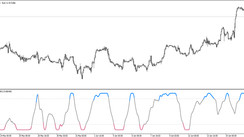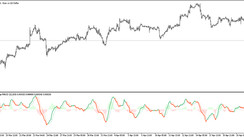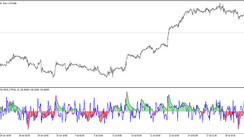Everyone knows or have heard about the wolves of Wall-Street. These people are usually traders who work for Goldman Sachs, Merril Lynch, JP Morgan, CityGroup, Morgan Stanley, and others.
These are people with a virtually endless supply of resources. Their algorithms can buy and sell stocks or forex thousands of times in the time it took to read up to this point.
Fundamental data? No problem. There is a department dedicated exclusively to collect data based on fundamentals. Technicals? Same thing.
So, at first sight, it looks as if retail traders have the cards stack against them. Institutional traders are head and shoulders above the common folk. But, reality can be weird sometimes. Truth be told, retail traders have several advantages that supersede whatever perceived privileges enjoyed by institutions.
Let's get something out of the way first. Yes, institutional traders enjoy lower fees and better access to resources. That's undeniable. But if that was all there is to trading, then only a handful of people on the world would be able to trade.
So here are some of the perks that the average citizen enjoys when they decide to become traders.
Freedom
It sounds so simple, yet it is remarkably powerful. Retail traders can walk away from it all at any time. Don't feel like trading that day? Don't. No one is stopping a retail trader from doing whatever they want. That is a significant contrast from institutional traders. They must always be looking for a way to make money regardless of the state of the market.
That's why in a study published in Science called "Stock Market: A Trader's Life" it was found that the average professional life-span of an institutional trader ranged between 2 to 5 years. That shows how crucial it is to be able at the best moment instead of always seeking the next big trade.
Choices and time
Being able to do whatever whenever spills over to what to trade and how much to trade. Yes, the quantities will never be equivalent between both. But that is a good thing. Institutional traders must stick to a set of rules. And depending on the institution, they range from not opening positions with too much volatility to avoiding some commodities or stocks altogether.
All these limitations don't apply to retail traders. Feel like getting into the penny market? Go for it. Want to trade the JPY/DOP? Sounds great. And it is this ability to buy/sell without limitations that also allows retail trailers to wait out bad trades.
Institutional traders are forced to close bad positions, even when historically they know they have to wait it out. Retail traders can wait and see how their loses turn into gains again.
Pressure
Lastly, retail traders have no real burden on their shoulders. Their performance is not subjected to a monthly goal that must be met at all cost. Therefore, they can develop patience. Warren Buffet is famous for his buy-and-hold strategy. In today's market, only retail traders can treasure the possibility of trading with patience.
Overall, retail traders may not have the tools that institutional traders have, but they don't need them. Having the ability to seek the best opportunity regardless, valuation, time, or volatility gives retail traders an edge that no wolf on Wall-Street will be able to obtain.





